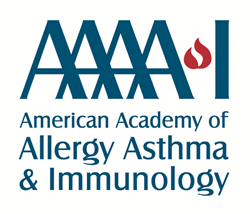
“As far as we are aware, this is the largest case series of sunflower seed sensitization.” – Celine Galleani, MD
MILWAUKEE (PRWEB)
February 08, 2021
A new case series looking at patients who have positive sunflower seed-specific IgE will be introduced during the 2021 American Academy of Allergy, Asthma & Immunology (AAAAI) Virtual Annual Meeting.
While the abstract of this research was included in an online supplement to The Journal of Allergy and Clinical Immunology that was published February 1, the full poster (#299) will be presented at the 2021 AAAAI Virtual Annual Meeting.
The retrospective case series examined 117 adult patients sensitive to sunflower seeds. These patients underwent skin tests and detection of specific IgE. At times, oral food challenges were also recommended and performed.
A total of 28 patients were recognized to have a clinical allergy to sunflower seed, amounting to 24% of those included in the study. Most of those also had a history of atopic disease and reactions to nuts and Rosaceae fruit. Fourteen patients (50%) suffered anaphylaxis, with all of those reactions graded as moderate save one. Of those suffering from anaphylaxis, 71% needed to go to the emergency department.
“As far as we are aware, this is the largest case series of sunflower seed sensitization,” said first author Celine Galleani, MD. “With half of the patients with a clinical allergy to sunflower seed experiencing anaphylaxis, it’s important that this allergen continues to be studied so we can develop tools to keep these individuals safe from exposure.”
Following skin tests the skin test wheal size, which is larger the more sensitive a patient is, was significantly larger for those with sunflower clinical allergy than those who could tolerate ingesting it. There were also significant differences in sunflower seed-IgE levels between the two groups. Additionally, skin testing reactivity to Artemisia pollen was more frequent in those allergic to sunflower seeds (71% vs. 22%).
Visit aaaai.org to learn more about food allergies and visit annualmeeting.aaaai.org to learn more about the 2021 AAAAI Virtual Annual Meeting.
The American Academy of Allergy, Asthma & Immunology (AAAAI) represents allergists, asthma specialists, clinical immunologists, allied health professionals and others with a special interest in the research and treatment of allergic and immunologic diseases. Established in 1943, the AAAAI has over 7,000 members in the United States, Canada and 72 other countries. The AAAAI’s Find an Allergist/Immunologist service is a trusted resource to help you find a specialist close to home.
Share article on social media or email:

